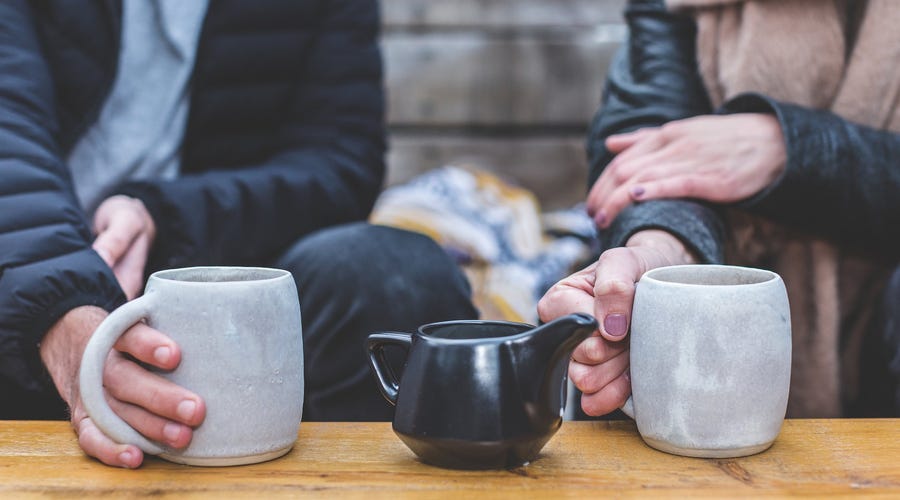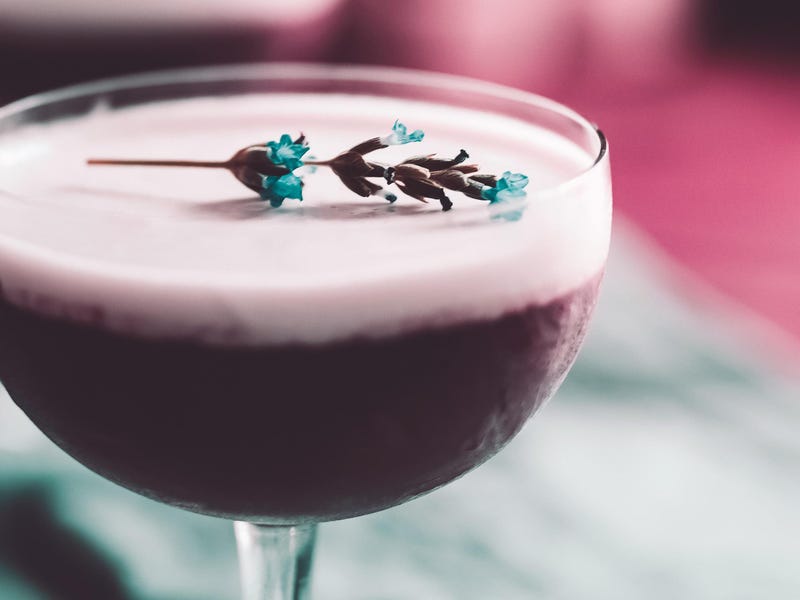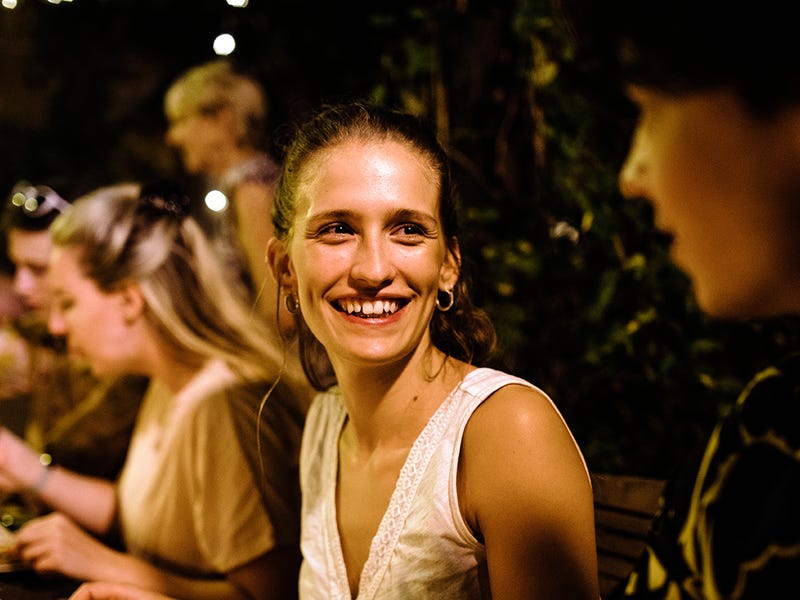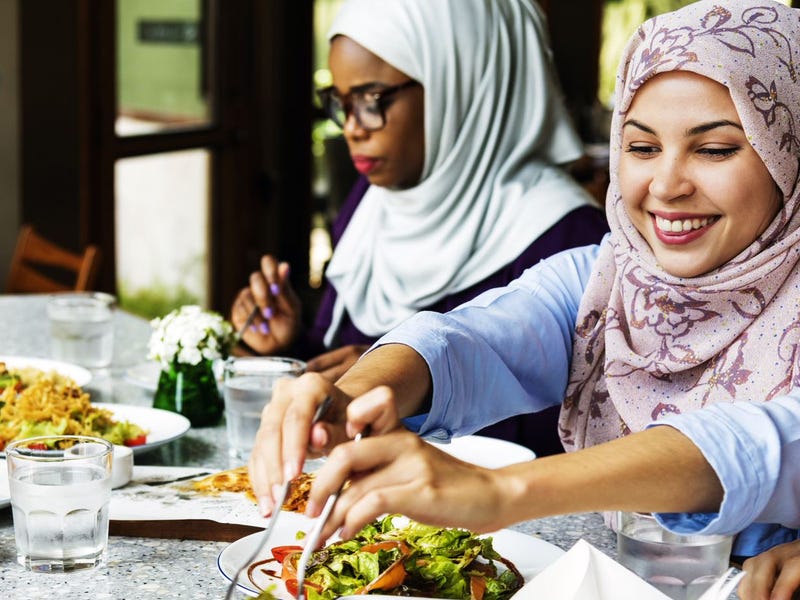The Brits have Tea Time, the Swedes have their Fika and the Germans have the delicious tradition of Kaffee und Kuchen, which makes coffee an integral part of German culture.
There are so many delicious German drinks that it can be hard to choose just one but between Kiba, Apfelschorle and of course our famous Glühwein, the numbers prove that we actually love coffee the most!
Germany is Europe’s largest coffee importer and the third largest coffee market in the world, right after the US and Brazil. If you’re learning German and getting to know German traditions, you won’t get around German coffee culture.
It’s a good idea to order a coffee in German or give your coffee preferences in a number of sitautions:
- When you’re starting early for your first day on the job in a German environment
- When meeting a friend or date at a coffee shop
- When you find yourself on Europe’s fourth biggest airport in Frankfurt and need a coffee on your long layover at 6 AM
- If you’re invited to a traditional German Kaffee und Kuchen

How to say coffee in German
Coffee in German is “Kaffee”. The plural is “Kaffees” but it’s more common to talk in cups if you’re having more than one. A cup of coffee in German is “eine Tasse Kaffee”, so if you’re having two or more, you’d say “zwei Tassen Kaffee” (two cups of coffee) for example.
If you’re a coffee lover, you probably want to learn how to order coffee all across the world. This is the perfect place to start as coffee culture is huge in the German-speaking countries and we have some fun traditions that involve coffee.
Types of coffee you can order in German
How do you drink your coffee? A triple espresso as black as the night or a vanilla latte with three pumps of syrup and extra foam on top? Either way, we don’t judge.
We’re just here to make sure you get your order right when you’re in Germany! That’s why we’ll teach you all the different variations, from black coffee over iced coffee to decaf coffee in German.
| English | German | IPA |
| Coffee | Der Kaffee | [ˈkafe] |
| Latte | Der Latte | [ˈlatə] |
| Caffè Latte | Der Milchkaffee | [ˈmɪlçkaˌfeː] |
| Iced coffee | Der Eiskaffee | [ˈaɪ̯sˌkafe] |
| Frappuccino | Der Frappuccino | [fʁappʊt͡ʃɪno:] |
| Black coffee | Schwarzer Kaffee | [ˈʃvaʁt͡sɐ ˈkafe] |
| Drip coffee | Der Filterkaffee | [ˈfɪltɐˌkafeː] |
| Turkish coffee | Türkischer Kaffee | [ˈtʏʁkɪʃɐ ˈkafe] |
| A cup of coffee | Eine Tasse Kaffee | [ˈaɪ̯nə ˈtasə ˈkafe] |
| Decaf coffee | Koffeinfreier Kaffee | [kɔfeˈiːnˌfʁaɪ̯ɐ ˈkafe] |
| Instant coffee | Der Instantkaffee | [ˈɪnstənt ˈkafe] |
| Espresso | Der Espresso | [ˌɛsˈpʁɛso] |
| Cappuccino | Der Cappuccino | [ˌkapʊˈtʃiːno] |
| Macchiato | Der Macchiato | [makˈkiaːto] |
| Mocha | Der Mocha | [ˈmɔka] |
More notable coffee vocab
A “Kaffeeklatsch” is a social gathering with tea and conversation. If you don’t know what to talk about, you can always talk about the coffee itself. Here is just the right vocab to help you get started.

| English | German | IPA |
| Do you want coffee? | Möchtest du Kaffee? | [ˈmøçtɛst du: ˈkafe] |
| Coffee break | Die Kaffeepause | [ˈkafeˌpaʊ̯zə] |
| Coffee klatsch (a get-together with coffee) | Der Kaffeeklatsch | [ˈkafeˌklatʃ] |
| Coffee party | Kaffeekränzchen | [ˈkafeˌkʁɛnt͡sçən] |
| Coffee powder | Das Kaffeepulver | [ˈkafeˌpʊlvɐ] |
| Coffee grounds | Der Kaffeesatz | [ˈkafeˌzats] |
| Coffee mug | Die Kaffeetasse | [ˈkafeˌtasə] |
| Coffee pot | Die Kaffeekanne | [ˈkafeˌkanə] |
| I need coffee! | Ich brauche Kaffee! | [ɪç ˈbʁaʊ̯xə ˈkafe] |
| I could really use some coffee right now. | Ich könnte jetzt gut einen Kaffee gebrauchen. | [ɪç ˈkœntə jɛt͡st gu:t ˈaɪ̯nən ˈkafe gəbʁaʊ̯xən] |
| This coffee tastes great! | Der Kaffee schmeckt spitze! | [de:ɐ̯ kafeˌ ʃmɛkt ʃpɪt͡sə] |
| Would you like to have a cup of coffee sometime? | Hättest du Lust, mal eine Tasse Kaffee trinken zu gehen? | [ˈhɛtəst du: lʊst ma:l ˈaɪ̯nə ˈtasə ˈkafe ˈtʁɪŋkən tsu: ˈge:ən] |
| Would you like to come in for some coffee? | Möchtest du auf einen Kaffee reinkommen? | [ˈmøçtɛst du: aʊ̯f ˈaɪ̯nən ˈkafe: ˈʁaɪ̯nkɔmən] |
| To drink | Trinken | [ˈtʁɪŋkn̩] |
| To sip | Nippen | [ˈnɪpn̩] |
| To brew | Brauen | [ˈbʁaʊ̯ən] |
How to order coffee in German
Whether you’re at a café, in a bar or on a plane, sometimes all you need is a coffee, so it’s important that you know how to order coffee in German. Here’s how those conversations might go.

Conversation example 1
| Speaker | German | English |
| Barista | Hey, was kann ich Ihnen bringen? | Hey, what can I get you? |
| Guest | Einen Milchkaffee, bitte. | One coffee latte, please. |
| Barista | Mit welcher Art von Milch? | With which kind of milk? |
| Guest | Was steht zur Auswahl? | What are the options? |
| Barista | Wir haben normale Milch, Mandel-, Soja- oder Hafermilch. | We have regular, almond, soy or oat milk. |
| Guest | Mandelmilch, bitte. | Almond milk, please. |
| Barista | Perfekt. | Perfect. |
Conversation example 2
| Speaker | German | English |
| Bartender | Darf ich Ihnen noch einen Drink bringen? | May I get you another drink? |
| Guest | Nein, danke. Ich glaube, ich hatte schon genug. | No, thank you. I think I’ve had enough. |
| Bartender | Kann ich Ihnen stattdessen einen Kaffee bringen? | Can I get you a coffee instead? |
| Guest | Das ist eine gute Idee. | That’s a good idea. |
| Bartender | Möchten Sie noch etwas anderes dazu? | Would you like anything else with that? |
| Guest | Nein, nur einen einfachen schwarzen Kaffee, bitte. | No, just a plain black coffee, please. |
| Bartender | Kommt sofort. | Right away. |
Conversation example 3
| Speaker | German | English |
| Flight attendant | Tee oder Kaffee? | Tea or coffee? |
| Passenger | Ich hätte gerne einen Kaffee, bitte. | I’d like some coffee, please |
| Flight attendant | Gerne. Wie trinken Sie Ihren Kaffee? Mit Milch und Zucker oder schwarz? | Sure. How do you take your coffee? With milk and sugar or black? |
| Passenger | Mit Zucker, bitte. Ohne Milch. | With sugar, please. No milk. |
| Flight attendant | Reicht ein Päckchen? | Is one package enough? |
| Passenger | Ja, perfekt. Danke. | Yes, perfect. Thank you. |
| Flight attendant | Bitte sehr! | You’re welcome! |
What’s German Kaffee & Kuchen?
German-speakers have been eating cake and drinking coffee since the 17th century. It only made sense to combine those two delights into one bittersweet custom and soon the so-called “Kaffee und Kuchen“ or “coffee and cake” was born.
Originally mostly royals got to enjoy this tradition but it was soon adapted by the broad public. Today it’s everyone’s favorite afternoon ritual. You get together with your friends or family to sip a coffee and munch some cake while catching up.
Americans adapted this German tradition and ended up loving it so much that they declared April 7 as National Coffee Cake Day!

Every day is National Coffee Cake Day
Coffee is something that people all over the world have been cherishing for centuries. Kaffee und Kuchen is the perfect occasion to practice your German. Get together with your German-speaking colleagues or friends and enjoy your coffee with the cake of your choice: German cheesecake, Black Forest Cake or Apfelstrudel.
Our German language blog will give you an endless number of conversation topics to talk about during your Kaffee und Kuchen break. The best way to learn German is to take a German class online and then take a trip to test your language skills in the real world. Now you have one more reason to visit: In Germany, every day is National Coffee Cake Day!



